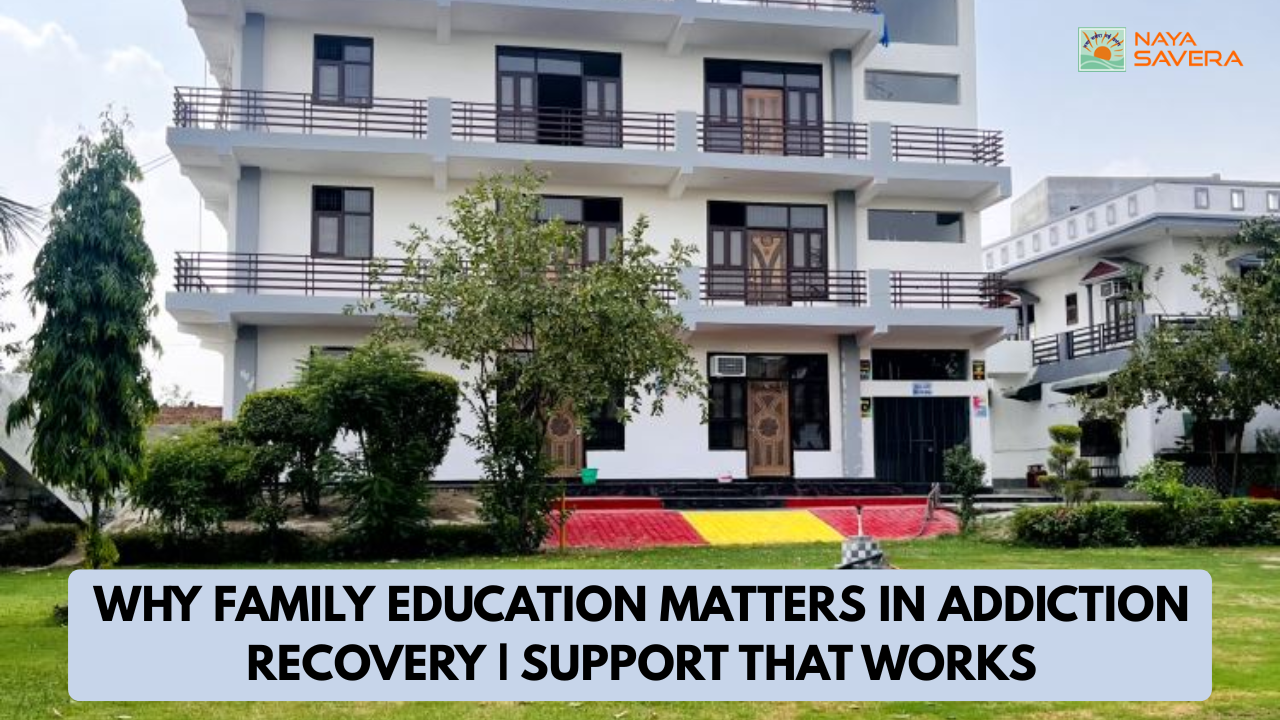When a loved one is struggling with addiction, the family often goes into crisis mode. Everyone tries to “fix” the person who is using substances, hoping that love, pressure, or constant monitoring will make them stop. But here’s the thing:
Recovery doesn’t begin with the addict. It begins with the family.
Addiction is not just an individual struggle. It reshapes the emotional dynamics, communication patterns, and daily life of the entire household. So if true recovery is the goal, everyone affected by the addiction has to learn, adapt, and heal—together.
This is where family education becomes the foundation of long-term recovery.
How Addiction Affects the Family System
Living with addiction doesn’t just cause chaos—it changes the emotional atmosphere of the home.
Common effects include:
- Broken trust
- Frequent arguments or withdrawal from communication
- Emotional exhaustion and burnout
- Financial strain
- Resentment, guilt, or shame
Loved ones start walking on eggshells. They want to help, but they don’t know how.
Often, families accidentally support the addiction without realizing it.
Examples of unintentional enabling:
- Giving money “just for today”
- Covering up mistakes or consequences
- Avoiding the topic to prevent conflict
- Taking full responsibility for the addict’s choices
These actions come from love, but they protect the addiction, not the person.
And this is why education matters. Families can’t support recovery effectively until they understand addiction itself.
Why Family Education Changes the Outcome of Addiction Treatment
When families learn what addiction really is—a chronic brain condition, not a failure of willpower—the entire approach shifts.
Family education helps loved ones:
- Communicate without escalating conflict
- Set healthy boundaries that are kind but firm
- Recognize relapse warning signs early
- Support recovery without enabling substance use
- Take care of their own emotional health
People in recovery who have an educated and emotionally stable family system:
- Stay in treatment longer
- Are less likely to relapse
- Have stronger mental health during recovery
- Rebuild relationships more successfully
And it isn’t just theory. Clinical research consistently shows that family involvement is one of the strongest predictors of successful recovery.
What Family Education Looks Like in Practice
Family involvement in recovery is not about blame, control, or constant supervision. It focuses on understanding and healing.
Core components include:
1. Family Therapy
A structured space to:
- Rebuild communication
- Address emotional wounds
- Establish trust gradually
2. Educational Workshops
These explain:
- The science of addiction
- Relapse triggers and prevention
- What healthy support looks like
3. Support Groups for Families
Groups like Al-Anon or similar family circles provide:
- Community empathy
- Shared experiences
- A place to not feel alone
4. Creating a Recovery-Safe Home
This means:
- Removing substances from the house
- Encouraging routines, not chaos
- Prioritizing emotional safety
The shift is simple:
From reacting to responding.
From emotional chaos to informed support.
How Families Can Start Supporting Recovery Today
If someone in your home is struggling, these steps are your starting point:
- Learn about addiction first
Don’t try to “fix” what you don’t understand. - Stop enabling
Support them emotionally—not financially or situationally. - Set clear boundaries
Boundaries are not punishment—they are protection. - Join a family support group
Healing together strengthens everyone. - Encourage professional treatment
Addiction cannot be solved with willpower alone.
The Real Path Forward: Healing Together
Recovery is not just about sobriety.
It’s about rebuilding a stable, supportive life where the person in recovery feels seen, understood, and held accountable.
When families are educated:
- Relationships repair
- Communication becomes healthier
- The chances of relapse decrease
- The home becomes a place where healing is possible
The strongest recovery is a family recovery.
If Your Family Is Struggling Right Now
You’re not alone in this.
There are rehabilitation centers and nasha mukti kendras in Delhi NCR, Noida, and Himachal Pradesh that prioritize family involvement, not just detox or counseling.
If you want real, lasting change:
Start by educating yourself.
Because recovery doesn’t start when the addict goes to rehab.
It starts when the family understands their role.
If you are looking for Luxury nasha mukti kendra or a best rehab center in India that truly understands how to leave drug addiction, Naya Savera Deaddiction and Rehab Centre provides comprehensive programs designed to guide individuals through detoxification, rehabilitation, and long-term recovery. With experienced professionals who understand the journey, Naya Savera offers a structured, supportive environment where you can learn to live a life free from drugs. As Arvind Kumar, a testament to recovery, often says, “Life hai, aap hopeless na ho” (Life exists, don’t be hopeless).
Visit Naya Savera Deaddiction Rehab Centre today or call us +91 9873290300 for confidential support.



Leave a Comment